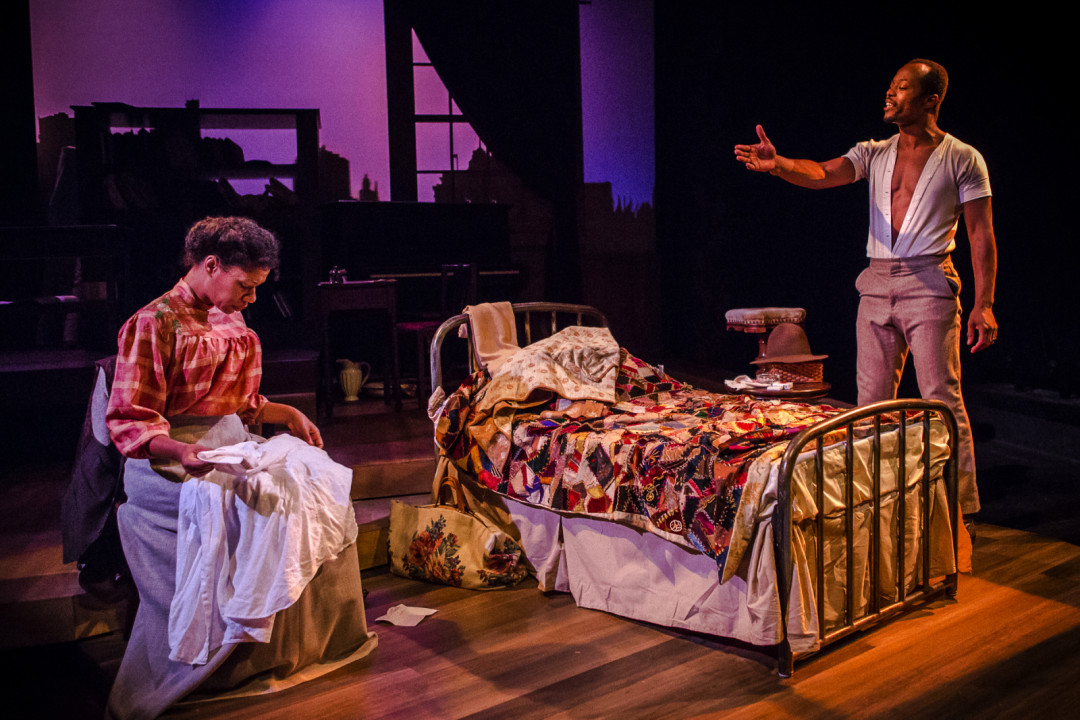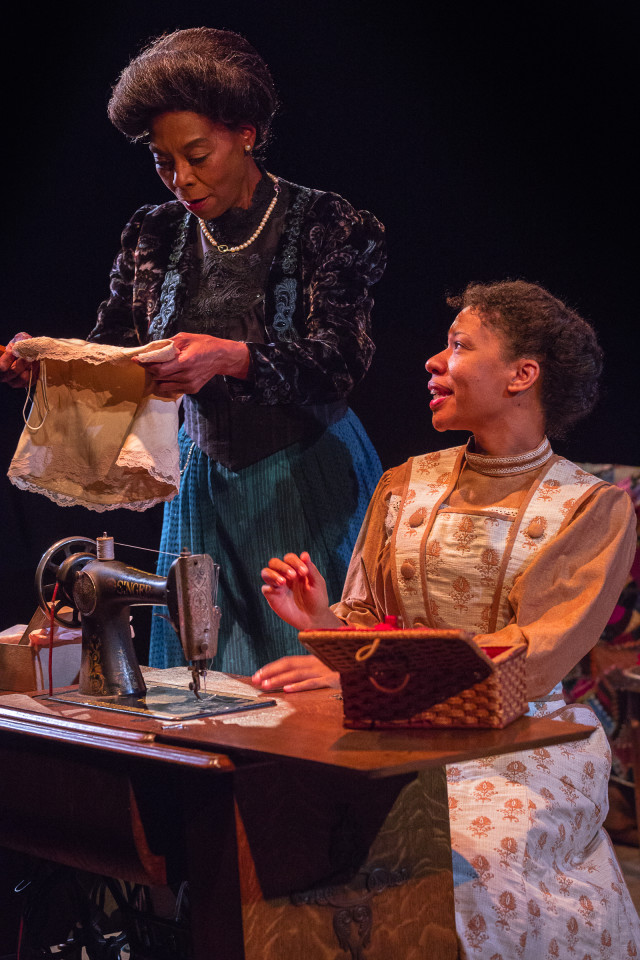Artists Rep’s ‘Intimate Apparel’ Is a Quiet Triumph

Ayanna Berkshire and Vin Shambry in Artist Rep's 'Intimate Apparel'
Image: Owen Carey
Nottage’s play is an affecting story of the difference between dreams and ambitions, between reality and fantasy. Unlike the undergarments Esther creates, her story is a deceptively simple one that speaks volumes about race, gender, class, and the shifting terrain of empowerment within the confines of all three.
Intimate Apparel impressed critics upon its off-Broadway debut a decade ago (starring Viola Davis, who’s since gone on to star in The Help, among others), and Artist’s Rep brings the play (and the playwright) to Portland for the first time with a graceful, seamless production that smartly lets the story speak for itself.
Intimate Apparel
Artists Repertory Theatre
Thru Oct 5The able directorial hand of Michael Mendelson keeps what could be a plodding plotline moving along nimbly, and Jack O’Brien’s clever set design sees the action through five distinct, lived-in spaces without a single set change. Sarah Gahagan’s period costumes—crucial to a play so concerned with clothing, fabric, and their meaning—are eye catching when they need to be, and subtly constructed when they don’t.

Demene E. Hall and Ayanna Berkshire
Image: Owen Carey
As the heroine, Ayanna Berkshire is quietly commanding, portraying the self-assured, independent Esther with few fireworks but plenty of heart. It’s a performance fully aware of how a confident persona can mask serious insecurities, and only the least self-aware viewers will have trouble relating to Berkshire’s seamstress.
The rest of the cast is without a weak link. As George, Vin Shambry’s melodious voice breaths life into his letters before his animated stage presence lends a similar vitality to the play’s methodical pacing. Dedra D. Woods slinks and sways absorbingly around her parlor as Esther’s world-wise prostitute friend Mayme, and Demene E. Hall brings a slightly less worldly wisdom and no small amount of levity as Esther’s matronly landlady, Mrs. Dickson. Sara Hennessy’s perpetually dissatisfied Mrs. Van Buren, a wealthy white customer of Esther, offers both a glimpse into a darker side of Esther’s marriage dreams and a bleak canvas for Nottage to examine the overt and hidden racial and sexual tensions of the era (tensions which, it must be said, haven’t gone anywhere).
Chris Harder is the production’s secret weapon as Mr. Marks, the Romanian Jewish fabric salesman whom Esther visits weekly. His lilting accent and shuffling appearance has the effect of hiding a character of real depth behind a caricature, but the steady unfolding of his connection with Esther, a connection forged over a shared appreciation for fabric despite its own set of significant cultural barriers, provides many of the play’s most touching and meaningful moments.
Many viewers will find Nottage’s ending slightly frustrating, as Esther makes a crucial decision that seems contradictory to all we know about her, both emotionally and intellectually. It seems, in a sense, to cheapen the hard work and deft touch with which Nottage builds these complexly human characters throughout the play, but perhaps that’s the point. As much as anything, Intimate Apparel is a play completely in tune with that particularly human way in which our emotions and our rationality cloud one another, damaging what we’ve worked hard to build—or making it difficult to build something in the first place.




